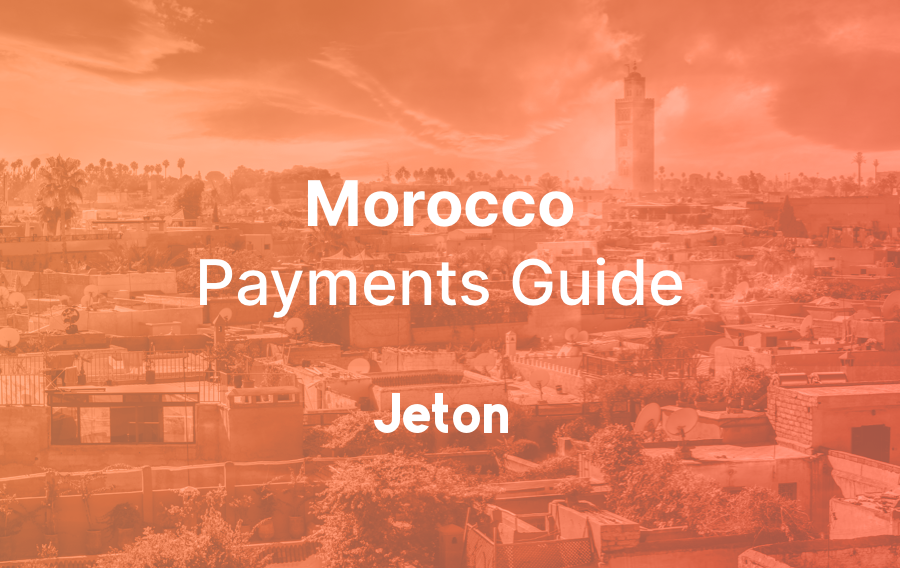Morocco is a lovely country located in North Africa, bordered by the Atlantic Ocean and the Mediterranean Sea to the west and north, respectively, and Algeria to the east. With a rich history and diverse culture, Morocco is known for its unique blend of Arabic, Berber, and African influences. The country is home to stunning architecture, including historic monuments like the Hassan Tower and the Koutoubia Mosque, as well as beautiful natural landscapes like the Sahara Desert and the Atlas Mountains. Morocco’s vibrant cities, such as Marrakech, Fez, and Casablanca, offer a mix of traditional and modern experiences, from bustling souks to chic cafes and restaurants.
What are the Available Payment Methods in Morocco?
In addition to its aesthetic and cultural appeal, Morocco is also known for its business hubs which welcome a high number of companies and entrepreneurs from around the world. Thanks to the country’s rapidly modernizing economy, Morocco’s payment systems have also seen an upgrade. Today, Morocco has a diverse range of payment methods, including cash, bank transfers, credit and debit cards, mobile payments, and online payment platforms. In this article, we will take a comprehensive look at the different payment methods available in Morocco and what you need to know about each one. Scroll down to find out what are the available payment methods in Morocco!
-
Cash
Cash is still widely used in Morocco, and the country’s official currency is the Moroccan Dirham (MAD). Morocco has a well-developed banking system, and there are ATMs available in most cities and towns, including Marrakesh, Casablanca, and Rabat. However, it is recommended that tourists carry some cash with them as some small shops and vendors may not accept credit or debit cards. It is also important to note that many restaurants and cafes only accept cash.
It is relatively easy to exchange foreign currency in Morocco, with Bureaux de Change available in major cities and tourist areas. It is important to be aware that the exchange rate offered by Bureaux de Change can be lower than the rate offered by banks, so it is advisable to compare rates before making a currency exchange.
-
Bank Transfers
Bank transfers are widely used in Morocco and can be made through the country’s network of banks. The majority of banks offer online banking services, which make it easy for customers to make transfers from their computers or mobile phone. Bank transfers in Morocco are usually secure, and many banks offer a range of services to help protect against fraud.
For example, the Attijariwafa Bank offers a range of security features for its online banking service, including two-factor authentication, secure passwords, and encryption to protect customer information. The bank also offers SMS notifications for transactions, so customers can be aware of any suspicious activity on their accounts.
-
Credit and Debit Cards
Credit and debit cards are widely accepted in Morocco, especially in major cities and tourist areas. The most widely accepted cards in Morocco are Mastercard and Visa. However, it is advisable to check with the merchant before making a purchase as some smaller shops may not accept these cards. It is also important to note that some merchants may charge an additional fee for using a credit or debit card, particularly in tourist areas.
When using a credit or debit card in Morocco, it is important to be aware of fraud and to take steps to protect your information. This includes only using ATMs that are located in well-lit, secure areas and checking the machine for any signs of tampering before using it. It is also advisable to keep your card in sight at all times and to never give your card information to anyone over the phone or online.
-
Mobile Payments
Mobile payments are becoming increasingly popular in Morocco, and there are several mobile payment platforms available in the country. Mobile payments in Morocco are quick and convenient, and they can be made using a smartphone or a feature phone. You can also take a look at our Jeton Wallet app for reliable and fast money transfers.
To use a mobile payment platform in Morocco, you will need to have a mobile phone with a Moroccan SIM card and an active account with the platform provider. Once you have an account, you can add funds to your account using cash or a bank transfer, and then use your mobile phone to make payments.
-
Online Payment Platforms
Online payment platforms are becoming increasingly popular in Morocco, and there are several platforms available for consumers and businesses. These platforms allow users to make secure online payments, receive payments, and manage their finances.
To use an online payment platform in Morocco, you will need to sign up for an account and provide some personal information, including your name, address, and bank details. Once you have an account, you can add funds to your account using a bank transfer, credit or debit card, or mobile payment.
Online payment platforms in Morocco offer a range of benefits, including the ability to make secure online payments, receive payments from clients or customers, and manage your finances from one central location. They also offer additional security features, such as encryption and two-factor authentication, to help protect against fraud.
Conclusion
Morocco has a diverse range of payment methods available, including cash, bank transfers, credit and debit cards, mobile payments, and online payment platforms. Whether you’re a resident or a visitor, it is important to choose the payment method that works best for you and your needs.
It is also important to be aware of the potential risks associated with each payment method, such as fraud and theft, and to take steps to protect your information and funds. By doing so, you can ensure that you have a safe and secure payment experience in Morocco.





